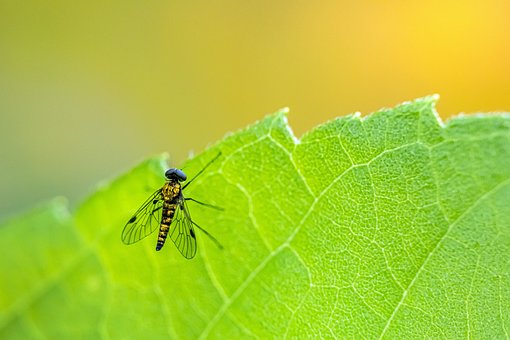Fruit flies yield clues to a good night's sleep

New research provides clues to falling fast asleep -- or lying wide awake. While studying fruit flies, researchers observed that the brain neurons adopt the flies to stay awake during dangerous situations despite tiredness and help them in falling asleep after a hectic day. This research is published in PLOS Biology. It can help in improving sleep quality and treating insomnia among people.

"If you're sick
or sleep deprived, or you've just learned something new, you sleep more,"
said co-corresponding author Paul Shaw, PhD, a professor of neuroscience at
Washington University. "But if something dangerous is happening, your
brain says, 'No, no, no, no. It's not time to go to sleep. I don't care how
tired you are.' The neurons that regulate sleep can tell the difference between
sleep when it's safe and sleep when it's dangerous."
The sleeping habits of
fruit flies and humans are almost similar. As normal humans, fruit flies too stay active during the day time, sleep at night, and take a nap in the afternoon. A most interesting
fact is that caffeine keeps them awake, and the drugs used by humans for sleep
showed results on flies too.
Talking about the
difference, the brain of a fruit fly is a million times smaller than that of a human.
Thus, due to the small size, researchers can study the role of each neuron.
The researchers focused on 24 brain neurons
that control the sleep cycle of a fly. These neurons receive and respond to sleep
signals sent by other neurons via chemical messengers known as
neurotransmitters.
The researchers
examined the signals that affect the sleep cycle and how those 24 neurons
respond to the neurotransmitters. The signals include Dopamine, which promotes
wakefulness; Glutamate, which promotes sleep; and Allatostatin A, which also
promotes wakefulness. Allatostatin A was previously known to play a role in
feeding behaviors, but now researchers have discovered that it also plays a
role in regulating sleep.
As normal human behavior,
we tend to sleep more after a hectic challenging day. This is the same case
with flies. Researchers revealed that living in a crowded environment trigger molecular
changes in the sleep neurons of flies. This makes them less reactive to
dopamine, thus increasing sleep.
During the study, researchers alarmed the
flies by periodically shaking the vials. Vials are where the flies live during
their sleeping hours. By this, the flies’ brains produced allatostatin A and
glutamate. These two opposite sleep signals kept the flies awake. This help flies
to even stay awake despite tiredness to deal with dangerous situations.
"A lot of people
don't sleep well, and we really don't know why," Shaw said. "Our data
suggests that there is a genetic predisposition to how neurological signals are
interpreted by sleep centers in the brain. If the system goes astray, then you
get these conflicting signals: You're tired, but you can't fall asleep. By
understanding how these conflicting signals can arise, we can begin to think
about how we might design therapeutics for people."
The researchers also
examined the sleep changes to variations in dietary habits. They normally
eat through the complete day, but for the observations researchers allowed flies to
access food between 8 a.m. and 5 p.m. After a week, the flies' sleep neurons
were more sensitive to dopamine, and the sensitivity persisted for days after
returning to a normal feeding schedule. The flies slept less, but they didn’t
show any sort of tiredness. This showed that the quality of sleep has improved
among them.
"Time-restricted
eating is a hot topic right now," Shaw said. "The claim is that
confining your food intake to certain hours of the day will help you sleep
better and maintain a healthy weight. The evidence that this works in people is
mixed. But in flies, our data suggests sleep quality improves with
time-restricted feeding. It's possible that there's an intersection between
time-restricted feeding and sleep regulation that we can take advantage of to
help people sleep better."
Story Source:
Materials provided by Washington University School of Medicine. The original text of this story is licensed under a Creative Commons License. Note: Content may be edited for style and length.
Journal Reference:
- Stephane Dissel, Markus K. Klose, Bruno van Swinderen, Lijuan Cao, Melanie Ford, Erica M. Periandri, Joseph D. Jones, Zhaoyi Li, Paul J. Shaw. Sleep-promoting neurons remodel their response properties to calibrate sleep drive with environmental demands. PLOS Biology, 2022; 20 (9): e3001797 DOI: 10.1371/journal.pbio.3001797

0 Comments